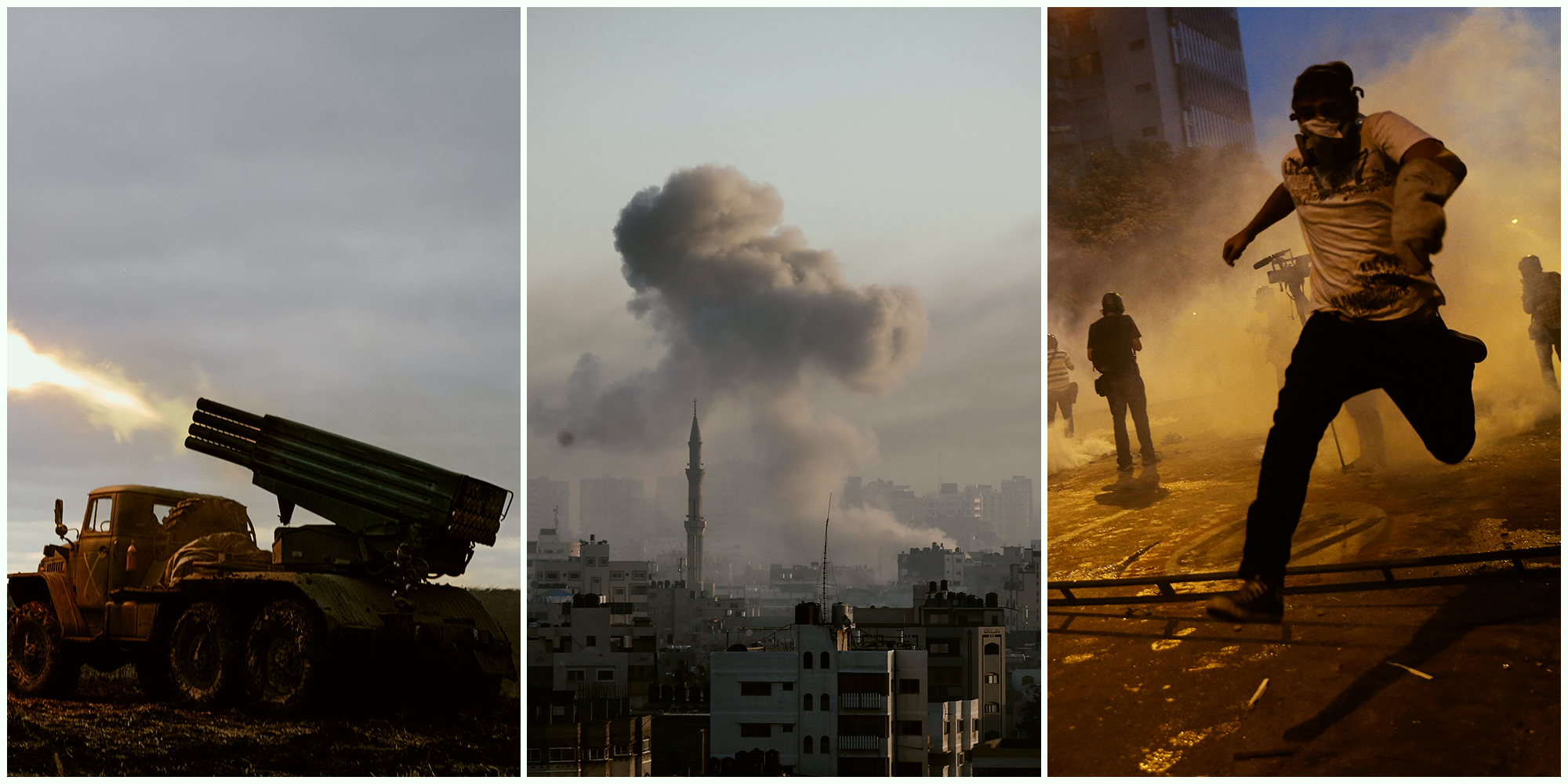As readers of this column will know, I happen to be that terribly unfortunate and misguided thing: an optimist. I find pessimism irritating and pessimists worthy of suspicion. Worse than that, I find them intellectually dubious because the most cursory observation of the world’s recent history is one of extraordinary economic development and, on average, a massive improvement in the general conditions of life. If you cannot see that, you are just not paying attention.
But there is one exception: war.
If there is a danger to our development as a species, it’s not overpopulation, health risks, inequality or even climate change. All of these can hurt, but they are not existential.
War is. And worse, armed conflicts are becoming more widespread, more diverse in their causes and more varied in nature.
The war in Gaza has somewhat obscured a bizarre dispute in South America between Venezuela and Guyana. In some ways, it has all the hallmarks of the Russia/Ukraine conflict. Venezuela has long claimed a very large part of Guyana, a much smaller nation on its southern border.
But the left-wing government of Nicolás Maduro recently increased tensions between the two countries by ordering a referendum in Venezuela asking citizens if they would be in favour of giving Venezuelan nationality to the 125,000 inhabitants of the region, Essequbo.
You honestly don’t have to be a sophisticated international affairs analyst to work out what is going on here.
Maduro and his predecessor, Hugo Chávez, have managed to destroy the once very successful economy of Venezuela with the usual left-wing methodology of grotesque economic ignorance and general brainlessness.
And now that huge, and I mean huge, oil deposits have been discovered off Guyana’s coast, the long-existing territorial dispute has gained a new dimension: the prospect of a financial windfall which Venezuela could really use at the moment.
Guyana is in the unfortunate position of being much smaller than Venezuela; it has a population of around 800,000, compared with Venezuela’s 28 million. The relative size differential between the two armies is extreme; much more extreme than the difference between the relative size of the Ukrainian and Russian armies.
Like Ukraine, Guyana has the support of almost the entire continent in which it exists, and like Ukraine, that might not be enough.
It’s pretty obvious that Maduro is seeking a diversion and a way to create a crisis to avoid a crisis: the precise methodology of Vladimir Putin. And like Putin (who, by the way, supports Maduro, obvs), he has assured everyone his intentions are peaceful, while at the same time significantly increasing a military presence on the border.
Fortunately for Guyana, the conditions on the ground are very different to those for Ukraine. The topography between the countries is undulating and the forestry is intense. The only way to reach the area with heavy artillery is through Brazil, and presumably Brazil, even under fellow left-winger Lula da Silva, would not allow that to happen. One hopes.
There are three important points to be made here.
First, armed conflicts are like outbreaks of a virus: they tend to escalate in unexpected ways, unexpected areas and unexpected directions. And we are seeing them breaking out in the most unusual of places. Suddenly, the Houthis, a Shia Islamist group who control the bulk of North Yemen, are disrupting shipping lanes in the Red Sea by firing rockets at ships, presumably with the aid of their Shia brethren in Iran.
The Houthi hostilities may not yet constitute a territorial conflict, but it does illustrate another facet of warfare – how far you can get with comparatively limited firepower.
The technology of warfare is changing in ways that benefit small, mobile guerilla armies.
In geopolitical terms, what that means is that the writ of large states isn’t as definitive as it once was. North Korea has effectively been thumbing its nose at the rest of the world, including China and the US, for decades. It is now forging a lucrative trade in selling its rocket technology to, of all nations, Russia.
All of this pales into insignificance compared to the dispute between China and Taiwan. Aside from the territorial issue itself, half of the world’s seaborne trade travels through the Taiwan Strait, an area that China claims. You shudder to even think…
In the old days, much of the justification for war originated in the desire for economic gain. For very obvious economic reasons, this justification has declined. I suspect the reason is that it just doesn’t work.
Left-wingers often claim that nations got rich on the back of imperialism. They definitely got richer, but actually, the facts don’t stack up; real economic benefits came with industrialisation. Lots of countries that never had any colonies of consequence, like Sweden and the US for example, got to be as rich as countries that did, like the UK and France.
But now, the reasons for territorial conflict essentially have much more to do with the internal politics of the attacker; the changing technology of modern warfare and the increasingly bifurcated nature of global power.
There is plenty to be pessimistic about here and I wouldn’t criticise anyone for being so. DM
Business Maverick
After the Bell: War — what is it good for? Absolutely nothing





